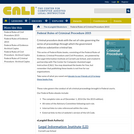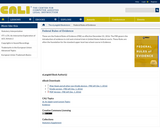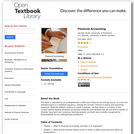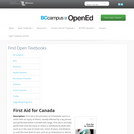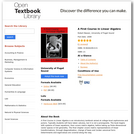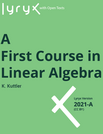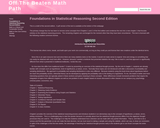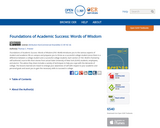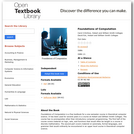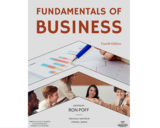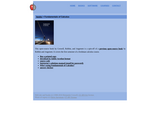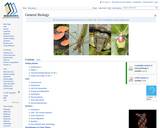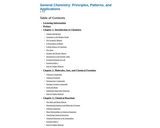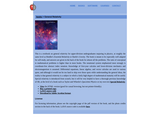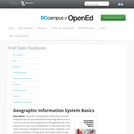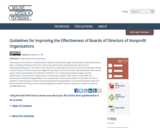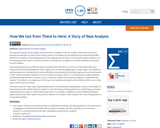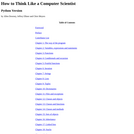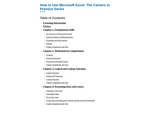Fundamentals of Business, fourth edition (2023) is an 434-page open education resource intended to serve as a no-cost, faculty-customizable primary text for one-semester undergraduate introductory business courses. It covers the following topics in business: Teamwork; economics; ethics; entrepreneurship; business ownership, management, and leadership; organizational structures and operations management; human resources and motivating employees; managing in labor union contexts; marketing and pricing strategy; hospitality and tourism, accounting and finance, personal finances, and technology in business. The textbook was designed for use in Virginia Tech’s Pamplin College of Business introductory level business course, MGT1104 Foundations of Business and is shared under a Creative Commons Attribution Non-Commercial ShareAlike 4.0 license.
The main landing page for this book is: https://doi.org/10.21061/fundamentalsofbusiness4e
An online, interactive, accessible version of this book is available at: https://pressbooks.lib.vt.edu/fundamentalsofbusiness4e
Information for Instructors
If you are an instructor reviewing, adopting, or adapting this textbook, please help us understand your use by filling out this form http://bit.ly/business-interest.
If you are an instructor seeking supplementary resources for teaching, please join the listserv for this book and the instructor resource sharing portal.
Class slides are available for this book: http://hdl.handle.net/10919/105157
A testbank is available by request for this book: http://hdl.handle.net/10919/93404 Please note that the testbank does not at this point reflect changes made between the third and fourth editions. The testbank is available to any instructor who has adopted Fundamentals of Business in their course. Please note that there are THREE steps in the test bank request process.
Where to Find the Book
Permanent handle: http://hdl.handle.net/10919/111385 (PDF, epub, and other versions)
URL: https://pressbooks.lib.vt.edu/fundamentalsofbusiness4e (HTML eBook-Pressbooks)
DOI: https://doi.org/10.21061/fundamentalsofbusiness4e (PDF, epub, and other versions)
ISBN 978-1-957213-24-8 (print-color) Order here https://www.amazon.com/Fundamentals-Business-Color-4th-Poff/dp/1957213248
ISBN 978-1-957213-25-5 (print-black & white) Order here https://www.amazon.com/Fundamentals-Business-black-white-4th/dp/1957213256
ISBN 978-1-957213-21-7 (ebook-PDF)
ISBN 978-1-957213-23-1 (HTML eBook-Pressbooks)
ISBN 978-1-957213-22-4 (epub)
Instructors reviewing, selecting or adapting the text are encouraged to register their use at http://bit.ly/business-interest in order to stay up to date regarding new volumes and editions, supplements, newly issued print versions, errata, and collaborative development or research opportunities. You may submit comments or report errors using this form http://bit.ly/business-feedback. Additional suggestions or feedback may be submitted via email at: publishing@vt.edu
This work is published by Pamplin College of Business in association with Virginia Tech Publishing. Funding and technical assistance for this project was provided by the University Libraries' Open Education Initiative.
Accessibility notice Virginia Tech Publishing is committed to making its publications accessible in accordance with the Americans with Disabilities Act of 1990. The Pressbooks (HTML) and ePub versions of this text are tagged structurally and include alternative text, which allows for machine readability.
What’s new? This version of the book, the Fourth Edition, improves upon the 2016, 2018, and 2020 editions. Improvements include:
- Data updates
- Updated graphics and photos;
- Added interactive, live-data graphs to the online version for key economic indicators in Chapter 3: Economics and Business;
- Reorganized and added significant additional content to Chapter 4: Ethics and Social Responsibility;
- Renamed and substantially expanded content in Chapter 7: Entrepreneurship and Small Business Development;
- Added additional content to chapters 8, 10, 12, 13, 14, and 17;
- Addition of completely new chapter — Chapter 19: Technology in Business;
A detailed list of changes by chapter is available in Version Notes at the back of the book.
Features of the book. Each chapter lists learning objectives at the beginning of the chapter and key takeaways at the end of the chapter. The Pressbooks version of this book also includes interactive self-quizzing.
TABLE OF CONTENTS
Chapter 1: Teamwork in Business
Chapter 2: The Foundations of Business
Chapter 3: Economics and Business
Chapter 4: Ethics and Social Responsibility
Chapter 5: Business in a Global Environment
Chapter 6: Forms of Business Ownership
Chapter 7: Entrepreneurship and Small Business Development
Chapter 8: Management and Leadership
Chapter 9: Structuring Organizations
Chapter 10: Operations Management
Chapter 11: Motivating Employees
Chapter 12: Managing Human Resources
Chapter 13: Union/Management Issues
Chapter 14: Marketing: Providing Value to Customers
Chapter 15: Pricing Strategy
Chapter 16: Hospitality and Tourism
Chapter 17: Accounting and Financial Information
Chapter 18: Personal Finances
Chapter 19: Technology in Business
How to cite this book
Ron Poff (2023). Fundamentals of Business, 4th Edition, Blacksburg: Pamplin College of Business. https://doi.org/10.21061/fundamentalsofbusiness4e. Licensed with CC BY-NC-SA 4.0 https://creativecommons.org/licenses/by-nc-sa/4.0.
About the Author
About the Previous Author
Fundamentals of Business, 4th edition is adapted from a work produced and distributed under a Creative Commons license (CC BY-NC-SA 3.0) by a publisher who has requested that they and the original author not receive attribution. We wish to extend our gratitude to the original author for portions of her book which were remixed and adapted to form portions of Chapters 1-15 and 17-18 of Fundamentals of Business. If the publisher and author are both willing to allow us to provide attribution to the author while retaining use of the Creative Commons license and continuing to provide free public access, we will gladly and publicly thank the original author here.
About Ron Poff
Ron Poff is Assistant Professor of Management Practice in the Management Department at Pamplin College of Business, Virginia Tech, where he teaches management courses. He began his career as an enlisted member of the US Navy Reserves before entering his primary career in supply chain operations then sales and marketing, where he served in executive roles with large corporations for over 25 years. As an entrepreneur, he then founded his own marketing agency. His education includes a B.S. in Business Management, M.S. Marketing, and a Graduate Certificate in eMarketing.
About Stephen Skripak
Stephen J. Skripak is retired Professor of Practice in Management at Pamplin College of Business, Virginia Tech (2005 - 2021) and former Associate Dean for Graduate Programs (2006-2014). He is a senior executive with 25 years of business leadership experience, including positions as General Manager and Chief Financial Officer with divisions of Fortune 500 companies. His background includes financial services, consumer packaged goods, apparel, and industrial companies, with emphasis in turnaround situations. He was the lead contributor and subject matter expert for the 2016 and 2018 editions of Fundamentals of Business, and reviewed the 2020 and 2023 versions of the book.
Contributors
Lead Contributor: Ron Poff
Contributors to the Fourth Edition: Howard Haines, John Andy Travers
Managing Editor: Anita Walz
Editorial Assistant, Graphic Design, and Production Manager: Kindred Grey
Past reviewers/contributors: Anastasia Cortes, Jonathan De Pena, Lisa R. Fournier, Lauren Holt, Nina Lindsay, Katie Manning, Sarah Mease, Richard Parsons, Sachi Soni, Michael Stamper, Gary Walton, and Blake Warner
